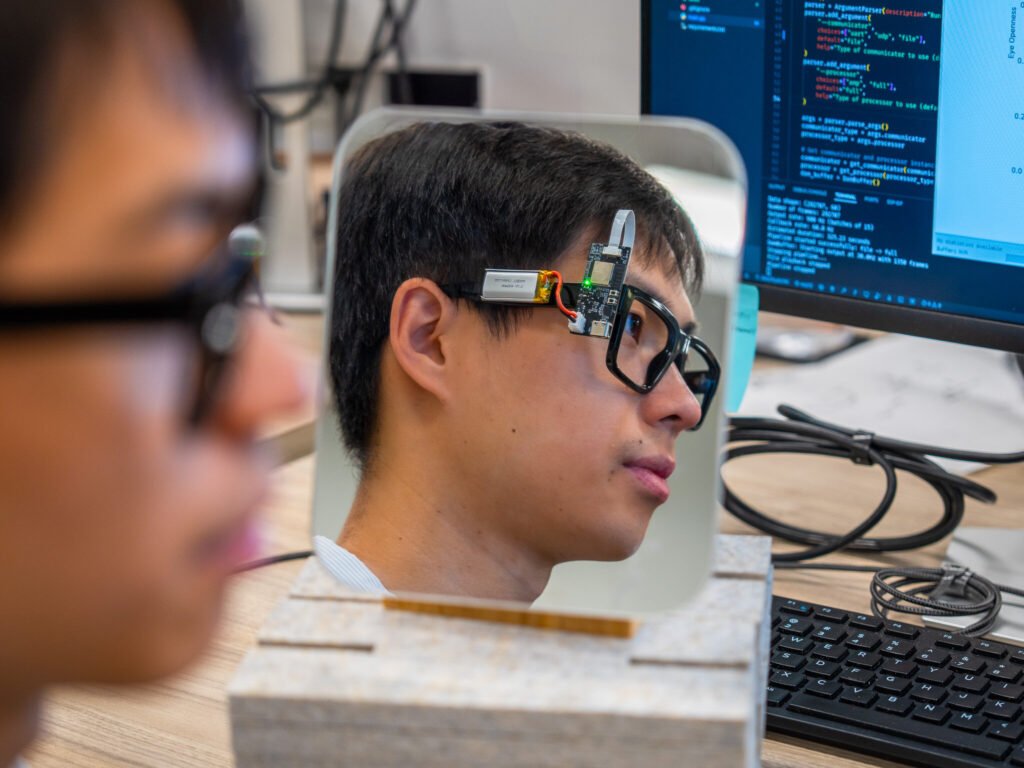Researchers at the University of Pennsylvania have developed a new wearable device called BlinkWise that transforms ordinary eyeglasses into smart health monitors by analyzing how people blink. Instead of relying on cameras or invasive sensors, BlinkWise uses low-power radio waves and artificial intelligence to track eyelid movements with millisecond-level precision. This allows the system to detect subtle changes in blink patterns that reflect a person’s physical and mental state.
Blinking happens more than 10,000 times a day, and each blink carries information about fatigue, focus, eye dryness, and cognitive load. BlinkWise captures these dynamics by measuring blink duration, completeness, and timing. For example, longer eyelid closures may indicate drowsiness, while an increase in partial blinks can signal dry-eye disease. These insights are valuable for monitoring health conditions and preventing accidents caused by fatigue, such as those that occur during long-haul driving.
The device is designed to be lightweight, privacy-preserving, and energy-efficient. It clips onto standard glasses and uses edge AI to process data locally, reducing the need for cloud computing and minimizing power consumption. This makes it suitable for continuous, real-world use in environments like offices, vehicles, and clinical settings.
BlinkWise does not capture images. Instead, it emits radio signals that bounce off the eyelid and translate into an “eye openness score,” a real-time curve that models blinking behavior. This approach allows for high-resolution tracking without compromising user privacy. The technology was presented at MobiSys 2025 and represents a shift toward more intuitive and personalized wearable health tools.
The research team, including Mingmin Zhao and Lama Al-Aswad, sees BlinkWise as a foundation for the next generation of smart eyewear. By focusing on how people blink rather than what they look at, the device offers a new way to understand and manage health. Future applications could include early detection of cognitive decline, monitoring chronic conditions, and enhancing safety in high-risk professions.
Here’s a video that explains more about BlinkWise:
Press Release: AI at the Eyelid: Glasses that track health through your blinks
Source: BlinkWise Project Page
Journal Abstract: Tracking Blink Dynamics and Mental States on Glasses

